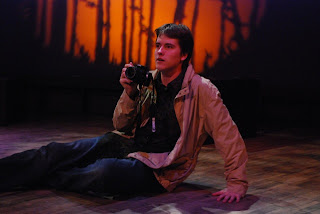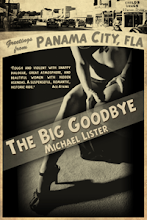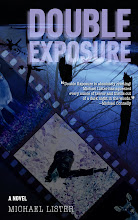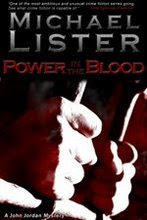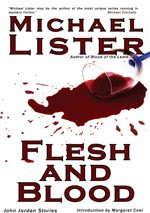
Making connections in modern American culture is increasingly difficult. There’s plenty of noise—cocktail chatter, small talk, so much sound and fury that ultimately signifies nothing, but there’s very little deep soul to soul connecting. In our frenetic activity, we bump into each other, but don’t really stop, don’t really listen, don’t really have meaningful exchanges—we commit social hit-and-runs and call them relationships.
It’s not that we don’t want to connect. I honestly think we’re dying to. Craigslist’s personals have an entire category devoted to Missed Connections, and though most of them appear to be written by horny people trying to find someone based purely on how they look, I think it underscores a deep longing for far, far more than just hookin’ up.
We are lonely. We are longing.
Has it always been this way? There’s no way for me to know, but I suspect that, though earlier times were more communal, caring, connected, true naked-and-safe connection has always been rare. The good old days get idealized and romanticized, but perhaps in this way, in rootedness and belonging, they actually were gooder.
There are many reasons for our separation and isolation, and far smarter people than me have written books about them (two I’ve mentioned here before are: “Bowling Alone” by Robert Putnam and “Loneliness as a Way of Life” by Thomas Dumm), but as complicated as the condition is (and I truly believe it is extremely complicated), I tend to think the single biggest contributing factor is parenting. We live in a time of absurd over and under parenting—two extremes that might actually produce similar results. Could it be that neglect, insignificant-to-the universe parenting on one end of the spectrum and over-indulgence, center-of-the-universe parenting on the other creates kids who become adults who can’t connect. The net result of feeling unworthy or too worthy of bonding is the same, is it not? How many times have we attempted to make a real connection with someone only to find out that they’re too self-absorbed and narcissistic or too absent a sense of self and wounded for it to be even remotely possible?
Ryan Bingham, the central character of Jason Reitman’s timely, insightful new film, “Up in the Air,” finds it nearly impossible to make connections. His job is to fire people from theirs, and he flies all over the country to do it. He has no trouble with connecting flights—he never misses them, but making connections with other human beings is a different story.
In the film, Bingham’s life in the air is threatened just before he is about to reach ten million frequent flyer miles and just after he’s met his female frequent flyer soulmate. The anguish, hostility, and despair of his “clients” has left him falsely compassionate, living out of a suitcase, and loving his above-it-all position. When his boss hires arrogant young Natalie, she develops a method of video conferencing that will allow termination without ever leaving the office—threatening Bingham’s very existence. Determined to show the naive girl the error of her logic, Ryan takes her on one of his cross country firing expeditions, but as she starts to realize the disheartening realities of her profession, he gets a glimpse of the emptiness of his way of life.
Ray Bingham is a rocket man. Elton John’s song could’ve been written for him.
It’s lonely out in space
On such a timeless flight
And I think it's gonna be a long long time
Till touch down brings me round again to find
I'm not the man they think I am at home
Oh no no no I'm a rocket man
Rocket man burning out his fuse up here alone
Here’s Rocket Man Ray’s philosophy:
“How much does your life weigh? Imagine for a second that you're carrying a backpack. I want you to pack it with all the stuff that you have in your life... you start with the little things. The shelves, the drawers, the knickknacks, then you start adding larger stuff. Clothes, tabletop appliances, lamps, your TV... the backpack should be getting pretty heavy now. You go bigger. Your couch, your car, your home... I want you to stuff it all into that backpack. Now I want you to fill it with people. Start with casual acquaintances, friends of friends, folks around the office... and then you move into the people you trust with your most intimate secrets. Your brothers, your sisters, your children, your parents and finally your husband, your wife, your boyfriend, your girlfriend. You get them into that backpack, feel the weight of that bag. Make no mistake your relationships are the heaviest components in your life. All those negotiations and arguments and secrets, the compromises. The slower we move the faster we die. Make no mistake, moving is living. Some animals were meant to carry each other to live symbiotically over a lifetime. Star crossed lovers, monogamous swans. We are not swans. We are sharks.”
Ray is detached—and “not in no kinda good way.”
Many religions teach detachment as way to achieve peace. Life is suffering. Suffering comes from attachment. End attachment, end suffering. But this practice isn’t a defensive, closed position of self-preservation so much as an end to idolatry and a freedom from the prison of possessiveness. I try to practice it less as detachment from than as attachment to—to everything and everyone. Who is my neighbor? Everyone—particularly those in need.
Jason Reitman has made a quiet, affecting, adult film—sophisticated and thoughtful—so timely as to make one believe in stars aligning and synchronicity. And he cast his film to perfection.
All of the actors in “Up in the Air” deliver brilliant performances, particularly Vera Farmiga and Anna Kindrick, but even amidst a stellar cast, George Clooney’s star shines so bright as to nearly eclipse the others.
Like a lot of movie stars, George Clooney, perhaps the closest thing to an old fashioned, Cary Grantesque movie star we have, is never not himself on screen. We’re not watching Ryan Bingham so much as George Clooney using the name Ryan Bingham. But of all the roles we’ve watched George Clooney play, this one seems to best suit his suave, charming coolness. In fact, characters don’t come much cooler than Ryan Bingham—cool all the way down to his detached, cold core.
During this season when so many fine films are being released, I hope you won’t forgo “Up in the Air.” With open heart and mind, I hope you’ll take it in and be challenged by it, for whether we are over-attached or overly-detached, we can learn much from Ray Bingham—even if mostly it’s how not to be.






